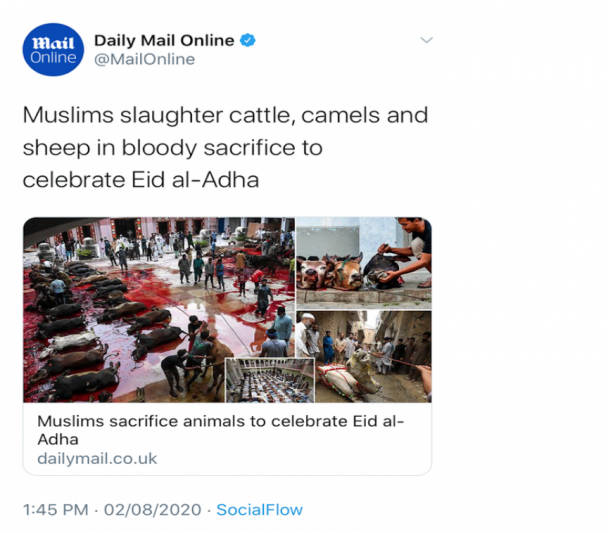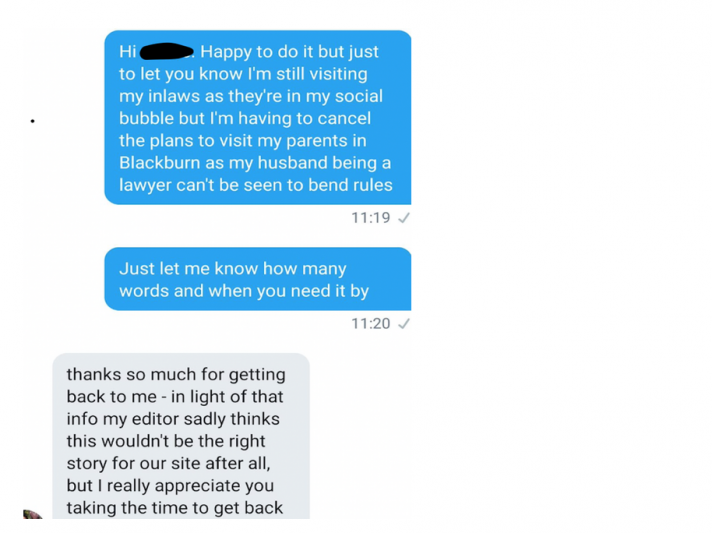By: Anmol Irfan
Ever since the UK government announced a sudden local lockdown just before the Eid al-Adha holiday British Muslims have expressed that the policy seemed to unfairly target Eid celebrations. Not only were these the only lockdown restrictions that were implemented almost immediately, but the restrictions appeared to target the exact activities that generally take place during Eid celebrations. Many have also claimed that Muslim communities are being unfairly targeted for the rise in cases that was claimed to be the reason behind the lockdown.
“There were thousands of people out on the streets after Liverpool won the Premiership and Leeds United were promoted to the Premier League,” Mahaz Raja, a 39 year old taxi driver told the Mail Online, pointing out the discrepancy in lockdown policies.

“None of them were maintaining social distancing and broke every coronavirus rule imaginable. So why did the government introduce new lockdown restrictions on the eve of Eid? As a community we feel that we are being unfairly targeted.”
Eid al-Adha is celebrated by Muslims around the world to commemorate the Hajj pilgrimage and highlight the importance of sacrifices to God—while the ritual is different, depending on where you are, the principle is always the same: share food, and make sure that those who are less fortunate have enough to eat, and celebrate no matter what.
So, when the new policies targeted areas with large Muslim populations—such as Greater Manchester, East Lancashire and parts of West Yorkshire, many felt deprived of this important holiday, particularly when pubs and other local gathering places were allowed to remain open. In many ways, the rules targeting only indoor gatherings felt as if they were targeting Muslims specifically—as did the media coverage that came afterwards.
As soon as the lockdown went into effect, several media outlets were quick to report on breaches of the lockdown—with a not-so-subtle focus on Muslims celebrating the Eid holiday. Perhaps the most prominent was the Mail Online reporting that boxer Amir Khan broke Manchester’s restrictions when he went to spend to spend the Eid holiday with family and friends at his “£1.3 Bolton mansion”—an odd focus given that the same weekend dozens descended on Britain’s beaches, and, scientifically-speaking—would have been just as likely to spread the pandemic, as families celebrating Eid together.
It fits into a larger Islamophobic narrative in the UK media—one that, even without COVID-19, notoriously reports on Eid holidays around the world as a slaughter rather than a sacrifice, and couple unnecessarily bloody images of cows, sheep and camels being killed with headlines pointing out the gore of the ritual. It is a narrative that serves an unconscious (or conscious) bias that Muslims are violent, and Islam is dangerous—a theory that severely impacts Muslim communities’ lived experiences.

A prime example of this comes during the Eid Holiday, when publications like the Daily Mail needlessly posted gruesome pictures of animal slaughter from around the world—but didn’t show festivals, gatherings, and feats that accompany the holiday as well. It is unnecessarily triggering, and creates links between Islam and violence, rather than Islam and celebration or charity.
It is also important to point out that similar practices are rarely interrogated with the same scrutiny—slaughter houses are rarely called violent bloodbaths, and meatpackers are not depicted with their hands dripping in blood, further pointing out the way that the sacrifice has been unnecessarily embellished.
In many ways, the COVID-19 pandemic added a new element to these already Islamophobic media practices—along with sensationalized headlines, and a lack of religious literacy or sensitivity, it pushes a narrative that Muslims, and often other minority communities as well, are to blame for spreading the pandemic. While hundreds of Britons have clearly violated social distancing regulations as can be seen in photographs of beaches, or Soho during “Super Saturday,” it is Black Britons who have been most often stop and searched or fined for loitering under the new Coronavirus laws, and Muslims who have to suspend their holiday plans to adhere to sudden lockdown measures.

Some media outlets have even purposefully pursued stories around Muslims, specifically, breaching lockdown rules. One Twitter user, A’ish (@juway_riyyah), tells Media Diversity Institute that a well-known publication approached her to commission a story about her family’s experience celebrating Eid amidst the new rules. However, upon finding out that she wouldn’t be breaking the lockdown rules, the commission was pulled back.
The UK media is in a position to hold the government to account over discriminatory policies, and ensure that everyone is responsible to stop the spread of the COVID-19 pandemic, but instead they amply, enforce and reinforce policies from the government, rather that criticizing them, or holding them to account. Media plays an enormous role in either respecting and celebrating the culture of minority communities, or further ostracizing them—and the tools that they use to do this should not be ignored. This past Eid, the UK media only further divided and created a false image of Muslim communities in the eyes of its readers—and for this, it should be held to account.

